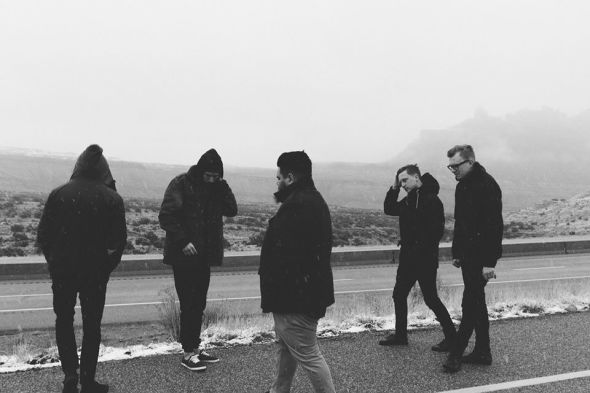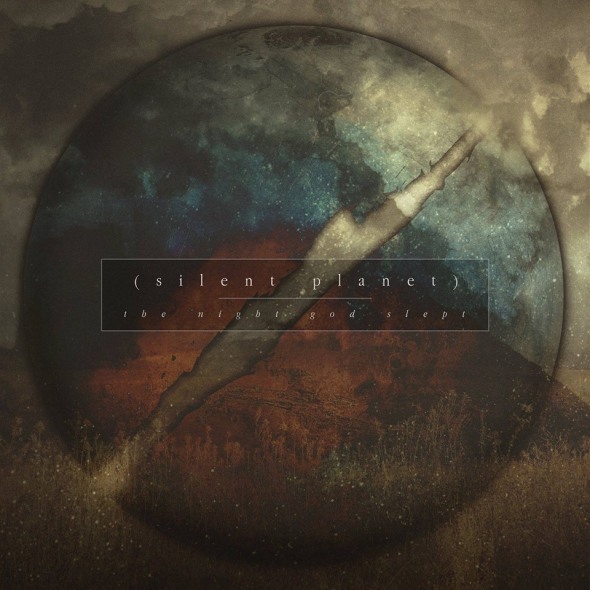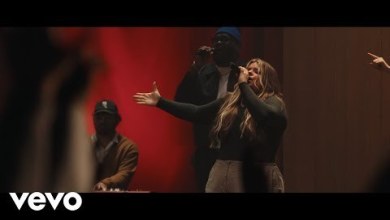Good Talks|July 14, 2015 03:04 EDT
Silent Planet's 'The Night God Slept' Offends Some Christians; Vocalist Discusses Sex Trafficking, Evangelism, & Being 'Uncomfortable' [INTERVIEW 2]

Christian metalcore band Silent Planet is making waves in rock music for their deep lyrics, complex music, and even more thought provoking musical themes. Vocalist Garrett Russell chatted with BREATHEcast about some of the meanings of the songs on the album, not understanding evangelism, the power music has on people, and what he wants listeners to take away from the message.
Read part one here.

The second song on Silent Planet's The Night God Slept, "XX (City Grave)," discusses the serious issue of sex trafficking, and dives into it in such a vivid yet harsh way. The song also speaks into the misogynistic views men have engrained into them toward females and the glorification of pornography that plagues humanity.
The vocalist says the song is one of the most emotional to perform of their set, and one they perform nearly every night. The emotion comes from it being a subject the band is passionate about, and also it being an aggressive song that matches the desperation of the scenario described.
He compares the persistent aggressiveness of the song as taking a page out of Underoath's live shows as they strived to be the "most violent thing" in terms of the rage and ferocious power subjected by their performances. "I want to disturb people and leave them with something that is completely difficult to reckon with," said Garrett.
Interestingly enough, his intense focus of sex trafficking for that song was not birthed out of a personal situation or even from someone he knew, but rather a misogynistic society. He explains that he and others live a privileged life, and think nothing of what is pushed upon society and instilled by the rest of the world regarding women. It's something he has "taken part of" whether intentional or not.
The main link he uses is pornography. "It's the same ability of people who think they can just look, and take what they want and not leave a part of themselves...that they can just use. That's been me, and I think that's been most American men at some point in their lives. That is where a lot of the intensity and emotion comes from."
An excerpt: "(We) buried our sisters in a glass display, only to evaporate to a toxic skyline - underneath we sell off the bodies."
"Tiny Hands (Au Revoir)" is another track that stands out for its incredible imagery as it beautifully takes a horrific situation, and brings it to life so people can understand something that is both tragic and miraculous.
The song itself was the first one written for the album, and created in the beginning of 2013. It was inspired by a violent incident involving a French town that was decimated by the Nazis during WWII, and a woman's first hand account as the only survivor. Without giving away the exact details of the song, look up the account of Madame Rouffanche and then listen to the words of the track.
A part of her amazing testimony was actually sung in the song in French, and it adds to the emotional feel. Perhaps one of the most poignant images used in the song is, "But jealous hands fashioned their cross to a sword, brandished their gift as a torch to burn the light." The cross to a sword picture painted here is in reference to the swastika emblem that the Nazis took as their sign.
Track number 10, "Wasteland," is a song that dives into the Soviet Union almost immediately following WWII. The nation is under duress and the leadership is trying to make the nation void of God to fashion their leaders up in that position. In doing so, Garrett fixates on the country being in turmoil because it keeps suppressing the presence of God - "They saw the end of God: Wasteland...The flag will fall with the walls we built: Wasteland."
This draws a more extreme parallel to what is going on in America today. The Christian community is slowly starting to see the foundation set by the church and religion fall as God is slowly being squeezed out of every part of society. It may seem like that obvious comparison to the listener, however, it is not what necessarily comes to mind for the singer.
Garret said every night the band performs the song, and he is screaming, "the flag will fall with the walls we built" and it reminds him of America. "I think of the walls we built around wealthy people. I would say that America is now more than ever controlled and ran by wealthy people than it is by the people of America. I think there's a lot of walls that have been built to keep poor people poor and to keep rich people rich. I don't mind saying that it will be the destruction of this country."
And to make his point clear, of course this is not something he wants. It is just the result of the continual "subjugation of people."
"I think where God is being removed from this country, I don't see it as much as statues or pledges, but I just see it as oppressing the weak; as something completely secular and moving away from the spiritual. The only value is what you have monetarily."
Other themes of the album include the plight of Native Americans in "Native Blood" and a mother and daughter caught in the blast of the atom bomb in Japan in "Darkstrand (Hibakusha)."

All these songs come together under the title The Night God Slept, but they do not form a concept but rather a theme that is seen from song to song. It plays to the questions people have about suffering and the existence of God during intense evil and tragedy. For example people would question, "Where was God during the September 11th attacks?"
"I can't tell you how many Christians have been offended by our album title because they quote a Bible verse and say 'God does not sleep'. I think the idea is not a literal God's tired and taking a nap, but that these times in history where I don't know how you can look at this incredible evil and not at least ask, 'Wait a second. I believe in a loving God. He's in control and this is happening?' How can these two things coexist?" said Garrett.
He continued, "I think you are not a compassionate individual if you can look at evil and not at least be hurt a little bit and say, 'How is this ok with God?'"
The vocalist wants the album to let people realize that it's ok to ask that question. It is ok to love Jesus and have questions about faith or doubts. These questions of spiritually are important topics of conversation to have in order to grow.
In the final song of the album, "Depths II," Garrett throws a bit of a twist and writes the song as if it was him that were sleeping all along. "This question of evil looks more like me and less like God."
So what is a Silent Planet listener supposed to take away from such a meaty album? There is so much to digest from song to song that the band provides footnotes in their lyrics books to references in the songs. The band knows the subject matter is intense and they are ok with that.
"I want people to walk away feeling uncomfortable. I want people to walk away with less answers than they had when they started, and I want people to walk away asking different questions about God and what the world needs than maybe what they were asking when they started listening to it," Russell admitted. "I'm a believer in it's not better answers we need, but better questions. That's what I'm passionate about."
This internal dialogue of questions and answers through music is a perfect example of the power music has on people. Music can change the shape of a culture and even change the soul of a person. Russell knows this to be true and thinks music does what words can't.
"I think music has the ability to move people because it's a basic human language. It's a more natural and less economically loaded language than languages we are given whether we speak English, French, Spanish, German, or Japanese. Music is the universal language because it bypasses a lot of the static in our brain and gets to some more rich territory."
With that being said, Garrett does not feel music is the best way to evangelize to non-Christians. "The more I follow Christ, the less I understand the idea of evangelism."
He feels like evangelism just becomes this "thing" that Christians have to do. He gave an example of almost keeping a schedule. From 2:00 p.m. to 4:00 p.m. is evangelism, and then at 5 it's time to go to the movies. Evangelism becomes part of a routine and not necessarily something that is conveyed naturally with a passion.
Garrett doesn't understand the point of creating a need and telling someone, "'You're not well, you're not happy, and you're going to hell. Here's what you can do to fix that?'"
"To me that sounds disingenuous. I can't tell someone that they are not doing well. I don't know you. You might be way happier than me," he explained. "I think the best I can ask for is that the music be an honest reflection of where I am and an honest attempt to give a voice to someone who doesn't have a voice."
In this way, Garrett has found a lot of people are moved by that, and believes the most impact has been in encouraging Christians to ask better questions and think about their relationship with God as more than an outlet to press their burdens on. The bigger picture is to consider a world that is in pain and to take the relationship with God out of the personal realm and open it up as an extended community.
What do you think of Garrett's ideas on evangelism, the power of music, and the focus of uncomfortable seriousness in the music? Let us know in the comments.
Silent Planet's The Night God Slept was released on November 10 2014. Pick it up on their website here.
Read part one with Garrett Russell of Silent Planet where he talks about the band's upcoming music, mental illness, and psychology here.












